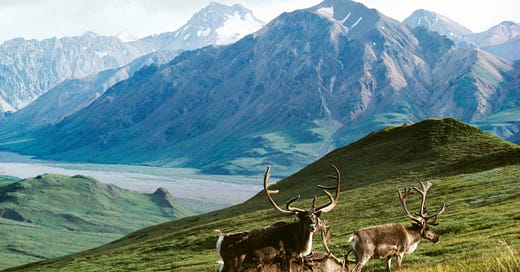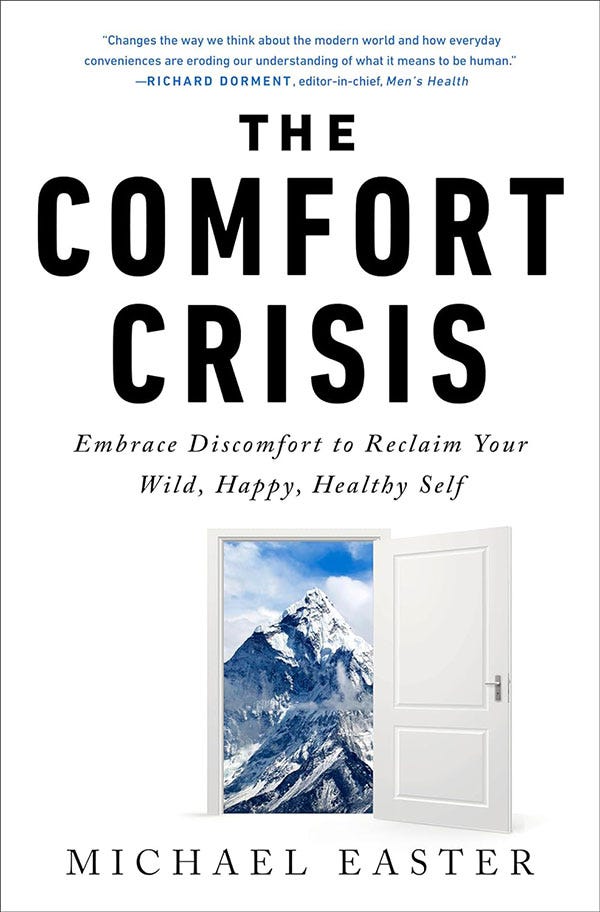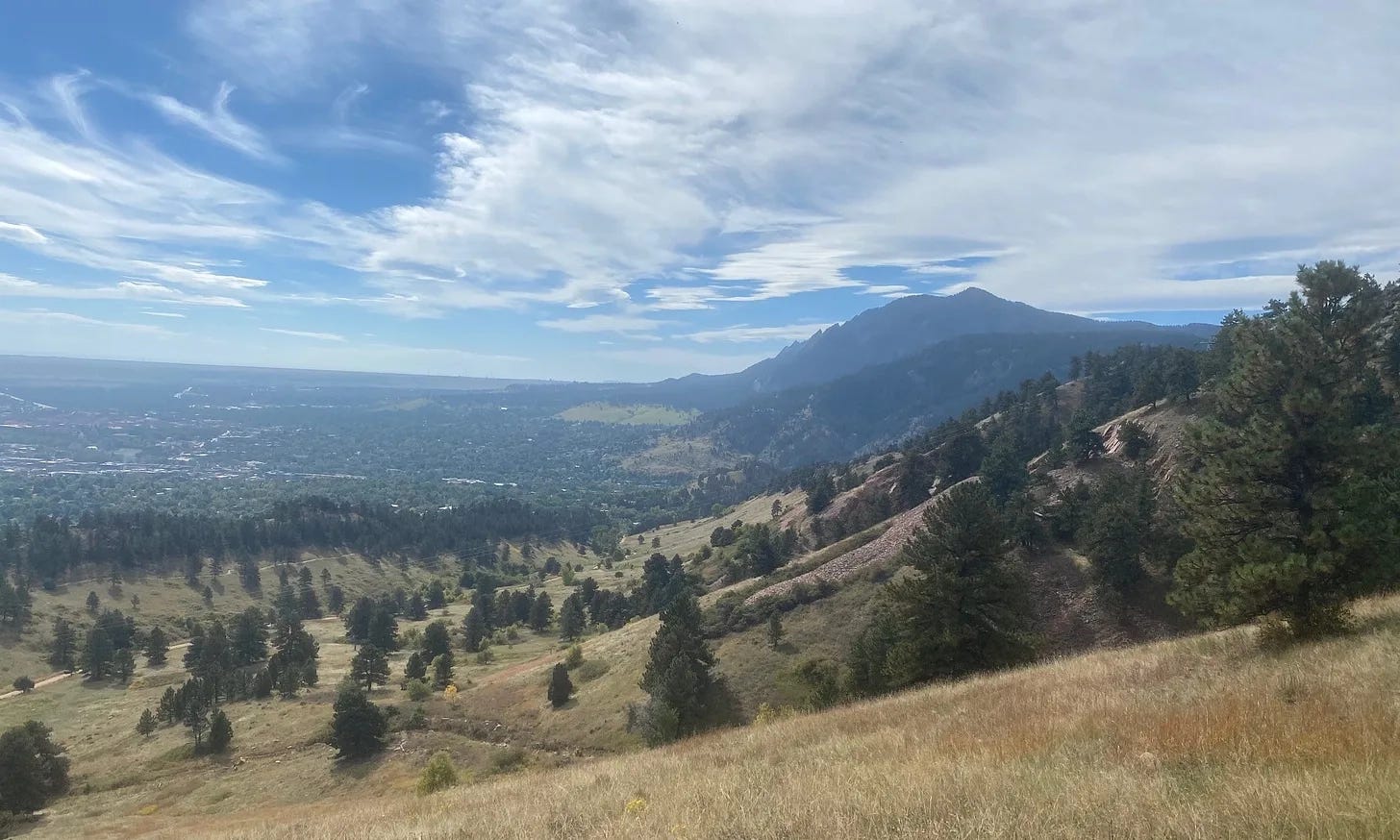November's Self-Helpy Memoir: The Comfort Crisis
Michael Easter argues for living a less sheltered existence.
The Comfort Crisis: Embrace Discomfort to Reclaim Your Wild, Happy, Healthy Self (2021)
by Michael Easter
Michael Easter opens The Comfort Crisis with two rules for embracing discomfort. First, make it really hard. Second, don’t die. Easter describes how humans have evolved to avoid discomfort at all costs, so much so that our current lifestyles are harming our mental and physical well-being.
Easter says that constant comfort — fast food, controlled climates, easy transportation (the kind that doesn’t require legs) — is causing our minds and bodies to atrophy. While our lifespans have increased, our health spans have not. He makes the case for seeking discomfort, citing compelling evidence and personal experience to prove the many benefits of an adventuresome life.
He writes about the ancient practice of misogi, “the act of taking on a challenge you have a 50/50 shot of accomplishing.” I can’t help but think this describes my typical day spent writing non-essential work emails and loading the dishwasher, both of which I have around a 50 percent chance of completing. But no, Easter’s misogi is a 33-day hike into the Alaskan wilderness to hunt caribou.
To train for his hike across the arctic tundra, Easter vacuumed and walked his dog with a weighted pack on his back, looking (admittedly) like an idiot. Walking with a weighted pack, I learn, is called rucking. It is safer than running and burns nearly as many calories.
Easter alternates between cold and desolate scenes from his trek and sociological commentary about how our urban lifestyles are neither good for our bodies nor brains:
“Twenty-seven percent of us don’t do any type of physical activity at all. Literally nothing. Life is a sort of prolonged shuffle from bed to office chair to sofa to bed.”
(to dishwasher.)
I am inspired to try rucking. There are $100 rucksacks and special weights you can buy, but Easter says a few books in any backpack will work fine. I wrap fifteen pounds of hand weights in a towel and stuff them into an old backpack. I drive to a nearby trailhead and swing the pack onto my shoulders. I begin walking as fast as I can up the hill, which is about the same speed as an older woman walking with no weight on her back. In a few short minutes, I am completely out of breath. I stop and count my pulse. One hundred forty beats per minute, which is around 80 percent of my maximum heart rate.
After thirty minutes, I reach the top of the valley. The older woman continues on, up the steep part of the mountain. I stop, turn around, and take a deep breath. I gaze down across the golden valley and up at wispy clouds in the distance. I watch a lone hawk circle above the peace and quiet.
Most of us will never take a months-long journey into the Alaskan wilderness, but we don’t need to. Our own misogi is just around the corner.





